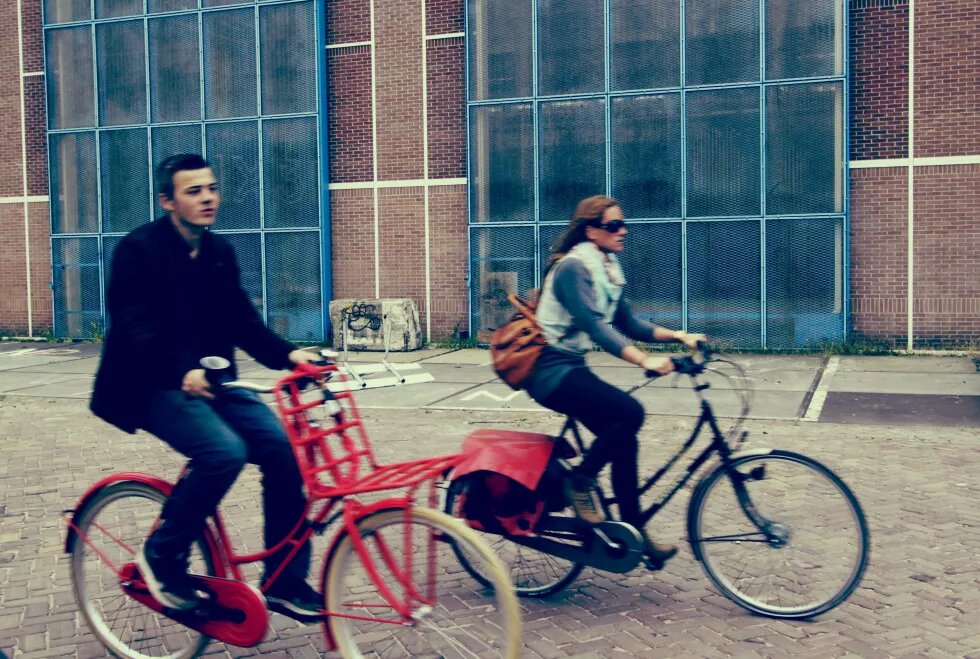
“Enhancing Sustainable Urban Development in Local Politics” is the Heinrich Böll Foundation’s training programme for professionals active in the field of urban planning and development with a strong interest in cross-sector cooperation and in making our cities more sustainable and inclusive. The training programme is organised in 4 modules which take place in the Czech Republic (Brno, Prague), Slovakia (Bratislava) and Hungary (Budapest) between November 2016 and September 2017.
Module 1: Affordable Housing, Brno, November 2016
With the group of twenty participants, we started our educational journey through Central European cities in Brno. There, we find progressive initiatives, policies and pilot projects focusing on affordable housing. Examples of innovative emerging cases include the most radical strategy for eliminating homelessness, the first pilot projects in line with the Housing First philosophy, student and senior housing, and strategies for social inclusion. These initiatives are currently rather disconnected from urban planning policies, however.
Associations addressing sustainable urban development usually target climate change, energy efficiency, urban infrastructure, resilience, etc. Housing, however, is the first and most elementary requirement for people living in cities. Due to gentrification, an influx of people into big cities, the free market in combination with a lack of municipal regulations, expensive mainstream development, a shortage of subsidised and municipal apartments, as well as new trends in short-term rentals such as Airbnb, affordable housing has become one of the greatest contemporary urban challenges not only in megacities like London, but also in Central European cities. In just one season, we have witnessed rents increase by 10-15% in Bratislava’s Old Town, by 30% in Prague’s central and neighbouring districts, and most strikingly by 100% in Budapest’s 7th District. Gentrification has suddenly become a very tangible phenomenon in Central Europe, and its cities are falling short in the area of affordable housing.
With changing demography, addressing the housing issue demands that we expand our thinking beyond the typical middle-class family unit. In larger cities, the numbers of single households in every age category have been increasing. When we think about the users of affordable housing, we have to take into account students, seniors, women, single mothers, ethnic minorities, immigrants, short-term migrant workers and the homeless. All these (low-income) groups are much more impacted by the shortage of affordable housing due to their vulnerability to poverty. Economic exclusion can trigger spatial and social exclusion.
In Brno, we had a chance to talk and exchange ideas with the initiators of the Housing First and Rapid Re-housing projects, and learned about them in-depth. We talked to those who are benefiting from them and also with those who are politically responsibleor rather critical. We have learned how the gentrification and affordable housing issues are interconnected, what forces are behind them, how the city administration and local politicians canintervene, and what kind of housing policies can resolve the shortage of affordable housing in the city.
Module 2: Critical Reflections on Participation, April 2017, Prague
In the architecture and urban planning of Central Europe, we have been experiencing an increased need for interdisciplinary, cross-sectoral collaboration, transparency and public involvement. In addition to the usual development projects, we are witnessing the first attempts to make public participation a legal prerequisite. The most advanced example in this area, the “Manual of Participation”, was created by the Prague Institute of Planning and Development in 2014. It outlines processes and methods for different kinds of urban developments in Prague, and has already been used effectively in more than six case studies. Two years later, the manual became a binding document approved by Prague's City Council, and it is now being used for all public procurement in each of the city's municipal districts. Other examples in Czech, Slovak and Hungarian cities are known as well.
However, while we are quite familiar with the term public participation and its basic methods, other activities have been disregarded or disconnected in the context of urban development processes on a larger scale. Public consultation, a concept known from urban planning practice in Great Britain, holistically includes all activities connected to the process of urban development – from process design, project coordination, the targeting of individual groups and actors, networking, lobbying and public participation down to the internal and external dissemination of information. Public consultation per se is a long-term process that includes all actors, and its current implementation in Great Britain definitely surpasses the level of urban development legislation and practice in Central Europe.
In the workshop in Prague, we will methodically outline project phases, documentation and methods of public consultation. What kinds of processes do we have? What are the ingredients of good processes? We will critically evaluate and draw on the case studies elaborated by the Prague Institute of Planning and Development, as well as the individual projects of participants. Attention will also be devoted to the inclusion of informal and cultural activities on sites into the ideal participatory process.
After Prague, we will travel to Bratislava and to Budapest to learn about current challengestherein the field of urban planning and development. We will continue to learn from analysingthegood and bad practices which exist in those cities, and we will further explore various aspects of sustainability, learn from innovative projects and discuss with experts and politicians in order to have as much exchange of ideas and experience-sharing as possible.
